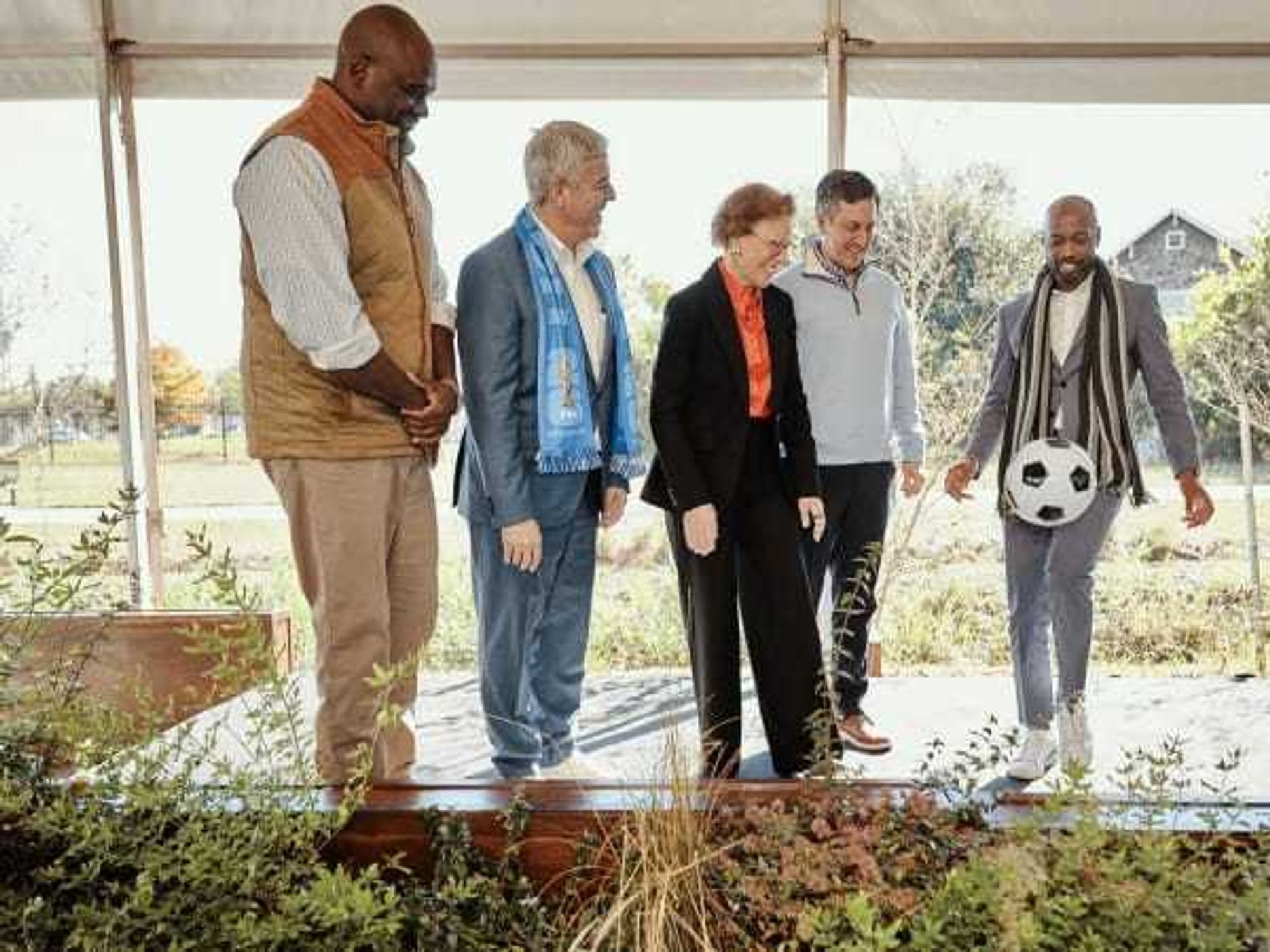Leaders in research
Outreach & support: How Baylor's innovative pediatric AIDS initiative in Africadecreases exposure, improves lives
 Botswana-Baylor College of Medicine Children’s Clinical Center of Excellence inGaborone, Botswana
Botswana-Baylor College of Medicine Children’s Clinical Center of Excellence inGaborone, Botswana Dr. Gabriel Anabwani, executive director of the Botswana Center of Excellence
Dr. Gabriel Anabwani, executive director of the Botswana Center of Excellence
In the past decade, the widespread use of antiretroviral medication — the drugs behind the famous HIV "cocktails" — has opened a new chapter in battling the global AIDS epidemic.
Nowhere has the fight against the deadly virus gained more ground than in sub-Saharan Africa, a part of the world swiftly becoming a leader in HIV/AIDS research thanks to the innovative outreach efforts of the Baylor College of Medicine International Pediatric AIDS Initiative (BIPAI) at Texas Children's Hospital.
When Baylor physician Mark Kline founded BIPAI in the late 1990s, the use of antiretrovirals for younger HIV-positive patients was still highly controversial within the medical community.
Ten short years later, BIPAI now works with more than 100,000 HIV-positive children and families — twice the number of infected youth in the U.S., Canada and Western Europe combined.
Working with renowned pediatric AIDS specialist Gabriel Anabwani, Kline and his program set out to convince researchers that a combination of pharmaceutical treatment and social support that focused on infected children could control the long-term spread of the disease in Africa.
"Mark and I conducted the first study proving that antiretroviral drugs actually worked for children in Africa, because nobody believed it at the time," Anabwani explained during a phone interview with CultureMap from the recent International AIDS Conference. That event was being held in the United States for the first time in decades, following the lifting of the U.S. ban on HIV-positive visitors and immigrants that had been in effect until 2010.
Anabwani said that the initial focus of the study was on Botswana where, by 2003, he would find himself director of Africa's first clinical AIDS facility, built by BIPAI with a $6 million grant from Bristol-Myers Squibb. "It's been my fortune and pleasure to work with the Baylor group and watch the network grow. It's amazing to see how far we've come."
Ten short years later, BIPAI now works with more than 100,000 HIV-positive children and families — twice the number of infected youth in the U.S., Canada and Western Europe combined.
An evolving mission
As the program flourishes, the initiative has found itself reshaping its mission to serve patients as they move into adolescence — an unanticipated but happy reality.
"Children we've been treating in Botswana are now reaching the adolescent years," said BIPAI project coordinator Ed Pettitt. "When they were born, most of these patients weren't expected to live to their fifth birthday. Now they're thriving on antiretrovirals until their teens. We've really had to change our focus and not just think as if we're still treating little kids."
One of the biggest challenges, Pettitt explained, is keeping patients on a steady course of treatment.
"When they were born, most of these patients weren't expected to live to their fifth birthday," said BIPAI's Ed Pettitt. "We've really had to change our focus and not just think as if we're still treating little kids."
"Many of our patients have been on treatments from such a young age, their viral load is virtually undetectable. Basically, they feel like healthy normal kids. When they become teenagers and have to start taking responsibility for their meds, they say to themselves, 'I've always felt healthy, so why do I need to take these drugs?' Sometimes they'll stop taking them and build up a resistance."
To reach out to this younger population, BIPAI maintains a network of support groups through its Teen Club initiative, which offers monthly meetings to cover topics like nutrition, treatment adherence and HIV exposure. In recent years, the program has started to host talks on financial literacy, study goals and career planning.
"Many of our 3,500 Teen Club members throughout the BIPAI network have been elected as teen leaders and peer educators and are working full-time in our facilities helping their younger peers manage their treatments," Pettitt said.
"Some of these kids are reaching young adulthood and heading off to college, so now we're putting protocols in place on how to transition out of our pediatric clinics and into adult-centered care. This approach has been very promising for our growing numbers of adolescent patients."
BIPAI continues to operate through support from charitable foundations, government grants and individuals. Visit the organization's website for details on how to give.
